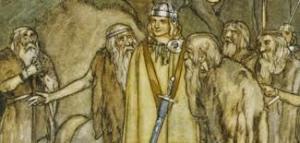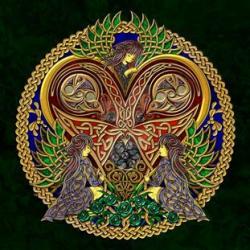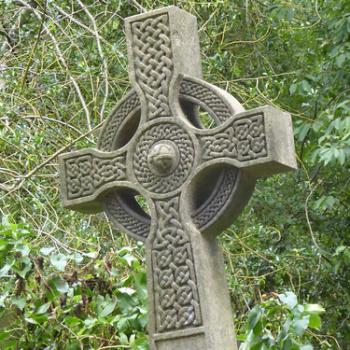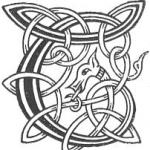
In our country where literacy rates are very high we often times forget how the ability to read is a relatively new concept. For the Celtic followers of Christ around the time of St. Patrick, the use of words to describe events or spiritual matters were reserved for the ruling elite. This class is also known as the Druids. The ruling class possessed Ogham lettering, a form of language that involved straight lines carved into wood. This changed after interactions with mainland Europe through Christians like St. Patrick, who introduced the Latin alphabet. Before this introduction to written language from the mainland, the most revered people in Celtic society were the seanchaí, or bards. These storytellers kept the traditions alive for the lower classes of society.
From Storytelling to Written Language
As soon as the alphabetized Latin language became available to the common Celt, the society took to using it immediately. The language was used with same vigor and imagination that had embodied the seanchaí. Brendan Leahy wrote “Celtic culture had long been intoxicated with words. For them, language was a form of Magic, the most potent form.” (Leahy, 2013) The same love, care and fascination with the oral tradition bled through into the written page in Irish culture. As the Latin alphabet replaced storytelling, The Irish found ways to make the parchments works of art. The pages were brought to life by the artists curling and flexible shapes.
Past Hero’s Make Christianity an Easy Sell
The written word was massively important to the Celt because it was considered almost magical. And when they found out that the hero of this new religion was a God who died for them, it became an easy sell to the Irish Celts. This is because the gods in the old religion had done similar feats. The written word had assisted the ancient Celt transition to Christianity as it explained that the God of the Palestinian was infinite and in everything. This made complete sense to a people that believed everything had the divine in it. The tree, the rock, the bog and the person were all created in the image of God, and therefore had the mark of the divine, a concept deeply rooted in pre–Christian Celtic thought.











